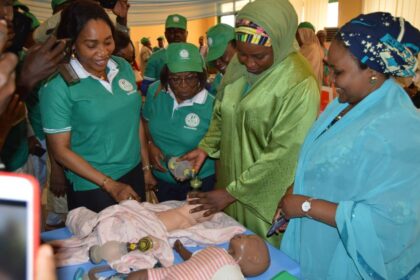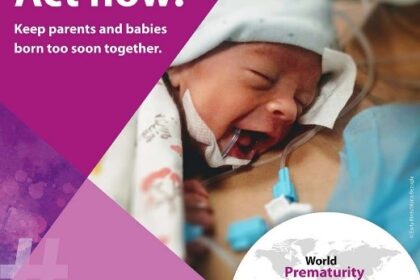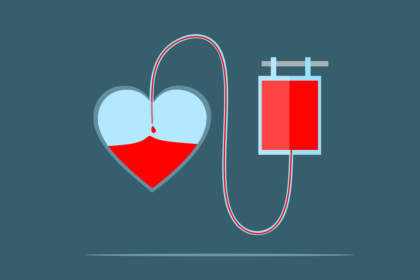World Hepatitis Day is held on the 28th of July every year to create awareness on viral hepatitis and to promote the importance of getting tested and treated for hepatitis. It is also a day to celebrate and encourage people affected by viral hepatitis, calling for the end of stigma and discrimination of hepatitis patients.
This year’s theme – Bringing Hepatitis Care Closer to You seeks to create awareness on the need to simplify hepatitis care and bring hepatitis care to primary health care centres and other locations aside from hospitals, so that people can easily get care for hepatitis wherever they are.
According to www.worldhepatitisday.org the theme for 2022 World Hepatitis Day is “I Can’t Wait”. This theme focuses on the fact that people living with viral hepatitis unaware can’t wait to get tested; People living with hepatitis can’t wait for life-saving treatments; Pregnant women can’t wait for hepatitis screening and treatment; Newborn babies can’t wait to get vaccinated; People affected by hepatitis can’t wait to end stigma and discrimination.
NEONATAL HEPATITIS
Neonatal Hepatitis is the inflammation of the liver that occurs within the first 2 months of life.
Approximately 20 percent of neonatal hepatitis is viral hepatitis; caused by a viral infection. The viruses mainly responsible is HAV, HBV, HCV, Cytomegalovirus, and Rubella.
These infections can be gotten from the mother during pregnancy especially HBV and HCV, or it could be gotten after childbirth due to unsafe medical practices.
In the remaining 80 percent of neonatal hepatitis cases, no specific virus has been identified as the cause.
Neonatal hepatitis caused by HAV is the most common type and is gotten through contamination of food or drink that the infant takes.
Symptoms of Neonatal Hepatitis
- Jaundice (yellow eyes and skin) due to increased bilirubin
- The infant will not gain weight but will be growing normally.
- Enlarged liver and spleen
- Flu-like symptoms
Diagnosis of Neonatal Hepatitis
- The first line of diagnosis for neonatal hepatitis is blood tests, to check for the presence of a virus that may be causing the disease. Blood tests are also done to check for blood cells counts and haemoglobin levels
- If no virus is detected, then a liver biopsy is done. The biopsy result may show 4-5 cells that have joined together to form a giant cell. These giant cells still perform normal liver functions but at a slower rate. This condition is called giant cell hepatitis.
- Liver function tests
- Urinalysis to check for bilirubin, ketones, proteins, haemoglobin and urobilin
- Ultrasound scans to check for enlarged liver or spleen.
Complications
There are several complications associated with neonatal hepatitis, including:
- Encephalitis: Neonates suffering from hepatitis caused by CMV and rubella are likely to develop brain inflammation, which can lead to mental retardation and other brain disorders
- Liver cirrhosis: Infants that reach this point of the disease will require liver transplant.
- Vitamin deficiency: Neonates with neonatal hepatitis are not able to absorb vitamins especially the fat soluble vitamins( ADEK) due to lack of bile. This will cause severe vitamin deficiency followed by the deleterious effects of the deficiency of these vitamins.
- Cholestasis of the liver: This is a condition where there is stoppage or slowing of bile flow from the liver.
Treatment
- Even though there are no specific treatments for neonatal hepatitis, vitamin supplements are administered to offset vitamin deficiency.
- Phenobarbital is also given to stimulate the liver to excrete more bile.
- The neonates are fed with formulas containing easily digested fat.
- Neonatal hepatitis A will most likely resolve itself within 6 months.
- Hepatitis B and C are chronic and may lead to liver cirrhosis in which case transplant is required.
How to Prevent Neonatal Hepatitis
- Use of sterile needles
- Screening and treatment of the expectant mother
- Vaccinations against Hepatitis B (Very compulsory and important).
REFLECTIONS BY EZINNE IGWE ESTHER
REFERENCES
- World Hepatitis Day 2022 (https://www.who.int/westernpacific/news-room/events/detail/2022/07/28/western-pacific-events/world-hepatitis-day-2022)
- Hepatitis (https://www.healthline.com/health/hepatitis#causes)
- Neonatal Hepatitis (https://www.hopkinsmedicine.org/health/conditions-and-diseases/hepatitis/neonatal-hepatitis)
- Neonatal Hepatitis (https://www.medindia.net/patients/patientinfo/neonatal-hepatitis.htm)





